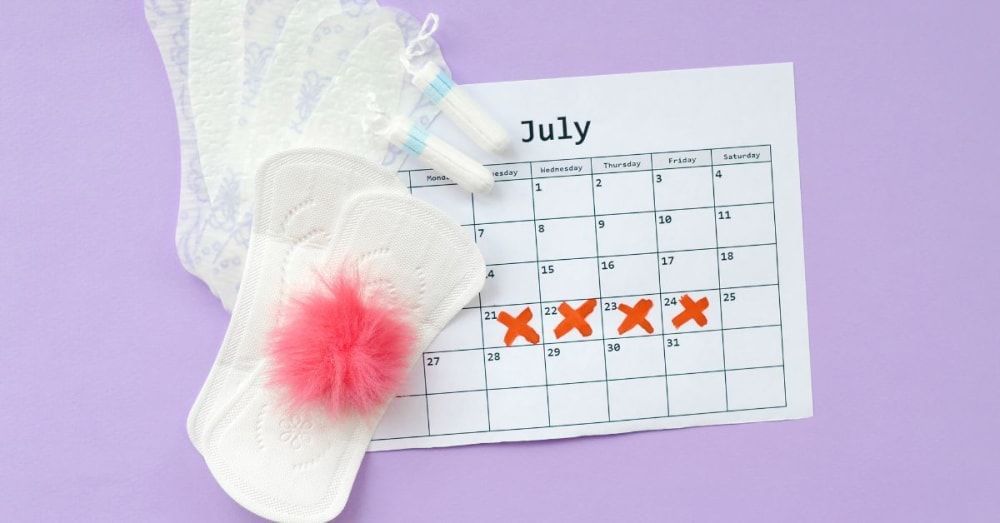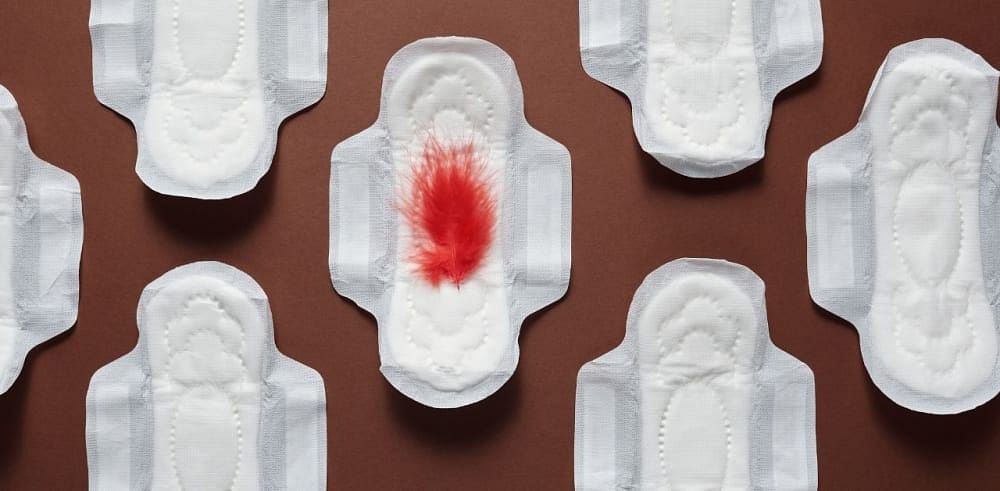Are you experiencing period pains but no period? If so, you might be wondering if you could be pregnant. While it is possible to have period pains but no period, it is important to rule out pregnancy as a probable cause.
Period pains are common in many women but usually accompany the menstrual cycle. This could include cramps or dull aches in the lower abdomen or pelvic area, typically felt several days before the start of the period and can last until the end. Occasionally, these pains can be felt without any bleeding.
Period Pains but No Period Could I Be Pregnant?
If you are experiencing period pains but no period, there are a few possible causes. These could include premenstrual syndrome (PMS), endometriosis, fibroids, ovarian cysts, ovarian remnant syndrome, or stress and anxiety. However, pregnancy could also be the cause since the pregnant uterus can cause discomfort due to its growth.
The only way to confirm or exclude pregnancy is to do a pregnancy test. If the test is positive, you are pregnant and should seek medical advice. If the test is negative, monitor any further period pains and speak to a healthcare professional if they persist or worsen.
My Period is 4 Days Late but I Have Cramps What Does it Means?
If your period is 4 days late, but you are still experiencing cramps, it could indicate pregnancy. Pregnancy can cause cramps as the uterus expands and changes to accommodate a growing baby. It is not uncommon for pregnant women to experience mild cramps and even spotting during the first trimester. However, if your cramps are more severe or accompanied by bleeding, it is vital to speak to a doctor immediately.
If you are not pregnant, there are many other potential causes for late periods. Stress and anxiety can cause hormones to become unbalanced, leading to a delay in menstruation. Other possible causes include excessive exercise, sudden weight loss or gain, taking certain medications, or an underlying medical condition.
If your period is more than a week late and you are not experiencing any pregnancy symptoms, it is best to take a pregnancy test as soon as possible. If the test is negative, speaking to a doctor to determine the cause of your late period is important. Depending on the cause, your doctor may recommend hormone therapy or lifestyle modifications to help regulate your menstrual cycle.
It is important to speak to a doctor if your period is more than 4 days late and you are still experiencing cramps. This will help to determine the cause and provide appropriate treatment if needed.
Is White Discharge a Sign of Period Coming or Pregnancy?
White discharge is commonly associated with the menstrual cycle; however, it can also indicate pregnancy. Depending on the amount, consistency, and colour of the discharge, it can indicate either one.
For most women, it is normal to experience some form of vaginal discharge throughout the month. This can range from creamy and white to clear and odourless and is often a sign that the body is preparing for the menstrual cycle. However, if the discharge is thicker, white, and milky, it is usually a sign that ovulation has occurred and your period is on its way.
During early pregnancy, some women may also experience a white discharge. This is caused by increased levels of progesterone, which can create a thick, white, odourless discharge that resembles cottage cheese. This is a sign that the body is preparing to support a growing baby and indicates conception has occurred.
It is important to note that white discharge can also be a sign of infection. If the discharge is accompanied by itching, burning, or an unpleasant odour, it is best to speak to a doctor immediately.
White discharge can be a sign of both periods coming or pregnancy; It is important to pay close attention to the amount, consistency, and colour of the discharge as well as any other symptoms that may be present. If there is any doubt, it is best to speak to a doctor for further advice.
Conclusion
Delayed periods and white discharge can have a variety of potential causes. Stress and anxiety can cause hormones to become unbalanced, leading to a delay in menstruation. Other potential causes include excessive exercise, sudden weight loss or gain, taking certain medications, or an underlying medical condition. Pregnancy can also cause cramps and white discharge as the uterus expands and changes to accommodate a growing baby.
If you experience any sudden changes in your menstrual cycle or notice any unusual vaginal discharge, it is important to speak to a doctor as soon as possible. They will be able to determine the cause and provide the necessary treatment. Common treatments for delayed periods and white discharge include hormone therapy, lifestyle modifications, and medications.
It is important to remember that any sudden changes in your period or discharge should not be overlooked. If you experience any of these symptoms, speaking to a doctor for further advice and treatment is best. By taking the necessary steps to address any changes in your menstrual cycle, you can ensure that your reproductive health is taken care of and that any potential issues are addressed on time.
References
Am I Pregnant? - https://my.clevelandclinic.org/health/articles/9709-pregnancy-am-i-pregnant
Symptoms of pregnancy: What happens first - https://www.mayoclinic.org/healthy-lifestyle/getting-pregnant/in-depth/symptoms-of-pregnancy/art-20043853
Irregular Periods - https://my.clevelandclinic.org/health/diseases/14633-abnormal-menstruation-periods











